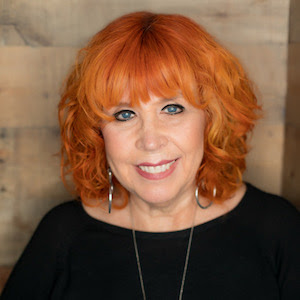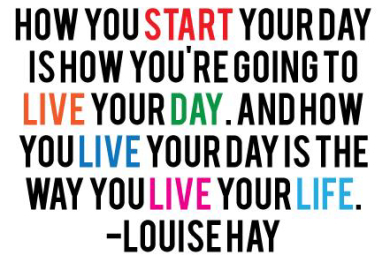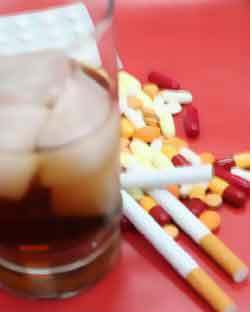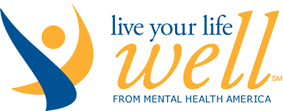Looking at Addiction is Tricky...........
It is our pleasure, purpose and goal to share Connection - Holistic Lifestyle - Alternative Healing Treatments - Living Happier with New Thought - from original sources.
GlobalCnet is a collection of links to original thought, research, new ideas and found expert advise. We have assembled extensive information and facts to inspire YOU to further your education, skills and desires on your specific subjects. When you click on a blue link, you arrive on a web site, do your research, and observe all the other articles available to you. Record what you need. Share what your learned
GlobalCnet connected you, to make better informed decisions.
This is a teaching and informative Web Site again, presenting original authors, like Harvard University, MedNet, Unstuck.com, Readers Digest, Mental Health and documents from millions of Web Sites which were written, published and illustrated with specific content to expand your knowledge for personal growth, health and answers. All this WWW content was meant for your reading and answers,
GlobalCnet just connected you.
It is our hope that you use all information for further answerers, ideas for more exploration and the wisdom to share discoveries with others. It is all about having the right fast or safe connections. Everything has atready been discovered, be smart and use proven methods and spin your solutions to fit your needs.
Any questions, comments or to just say hello...leave a webmail .
Quick links to information and new ideas. click here.
OK...you are now on GlobalCnet. You can use the SEARCH BAR to quickly find subject information, or you can visit all the pages. Your visit will award an organized starting point leading to answers to your challenge.......just do it. Type in a word and hit search.
- Michael J. Malette, PhD
Founder, Global Connection Network, Inc.
Words matter: The language of addiction and life-saving treatments
You know whats is up and what needs to change. Stopping COLD or addiction treatment begins when you first reach out for help. You can search the Internet, call recovery helplines or talk with rehab professionals to determine the best addiction treatment for you.
Investigate the types of methods that a program or treatment facility uses to determine whether the program will treat all of you or just your addiction. Explore such issues as the following:
- What led you to your addiction?
- What triggers cravings?
- How can you learn how to more effectively manage stress?
- What physical, nutritional, emotional and spiritual portions of your life need to recover as well?
This collection of hyper-links and shared thoughts, writings and expert opinion from many original authors, can present more theory and practical advise. Our purpose to share information so we can all Live Heathy and Happier.
Give yourself the credit..... by reading this text, the change desired for you, or your friend, has begun....read on for some opinion and comments.
The final challenge is to take action - when something goes wrong, think about it...and do somethng about it.
Enjoy, post to our BLOG and sign up for the FREE Newsletter. It Is all about Connection.
Sincerely,
Michael J. Malette, Founder, Author
................................................................................................................................................
Are addictions accually Bad Habits?
- People with bad habits of smoking often feel much persecuted. While smoking is not illegal (at least not yet), it is shunned by society as a whole.
- Sleeping pills are bad habits to get into as well. They can be so addictive that you need a higher and higher dosage to fall asleep. Eventually, they will not help at all.
- Alcohol can be a bad habit if you drink to excess. For some people with certain physical conditions, it can be risky anyway.
- Drugs pose a variety of bad habits. There are so many illegal drugs that they are too numerous to count.
- If you have an addictive bad habit, you probably need some form of help to get over it. In fact, once you have a serious addiction, experiencing the sights, smells, or sounds of your addiction will start your brain in that addictive mode again. It is no wonder that people struggle for years with addictive bad habits.
- Addiction and Substance Use Disorders
- Anxiety Disorders
- Depression
- Dissociative Disorders
- Eating Disorders
- Gender Dysphoria
- Obsessive-Compulsive Disorder (OCD)
- Personality Disorders
- Posttraumatic Stress Disorder (PTSD)
- Schizophrenia
EMOTIONAL HEALTH –
EMOTIONAL HEALING –
EMOTION –
A fusion of thought and feeling that expands your consciousness.
Becoming Your Wrong Decisions
We are not our decisions and no decision is wrong because we made the choice with the information at hand.
Our perception of the traits and characteristics that make us who we are is often tightly intertwined with how we live our life. We define ourselves in terms of the roles we adopt, our
actions and inactions, our triumphs, and what we think are failures. As a result it is easy to identify so strongly with a decision that has resulted in unexpected negative consequences that we
actually become that "wrong" decision. The disappointment and shame we feel when we make what we perceive as a mistake grows until it becomes a dominant part of our identities. We rationalize our
"poor" decisions by labeling ourselves incompetent decision-makers. However, your true identity cannot be defined by your choices. Your essence--what makes you a unique entity--exists independently
of your decision-making process.
There are no true right or wrong decisions. All decisions contribute to your development and are an integral part of your evolving existence yet they are still separate from the self. A decision that
does not result in its intended outcome is in no way an illustration of the character. Still, it can have dire effects on our ability to trust ourselves and our self-esteem. You can avoid becoming
your decisions by affirming that a "bad decision" was just an experience, and next time you can choose differently. Try to avoid lingering in the past and mulling over the circumstances that led to
your perceived error in judgment. Instead, adapt to the new circumstances you must face by considering how you can use your intelligence, inner strength, and intuition to aid you in moving forward
more mindfully. Try not to entirely avoid thinking about the choices you have made, but reflect on the consequences of your decision from a rational rather than an emotional standpoint. Strive to
understand why you made the choice you did, forgive yourself, and then move forward.
A perceived mistake becomes a valuable learning experience and is, in essence, a gift to learn and grow from. You are not a bad person and you are not your decisions; you are simply
human.
--------------------------------------------------------------------------------------------------
How to Cure Your Addiction to Your Comfort Zone
It’s politically incorrect to say this, but I’m going to anyway.
Some people are just soft. Maybe you’re one of these people. See, being soft simply means you’re addicted to being comfortable and you’re afraid of doing anything hard. You can be soft mentally, physically, spiritually, so it goes.
The messaging of society is designed to keep you soft, weak, and complacent. See, here’s what the infamous “they” do to you. They take perfectly good, healthy, and reasonable concepts and bastardize them to the point they no longer become reasonable.
What am I talking about?
Here are some examples.
Some people are, without question, clinically depressed. But that doesn’t mean that having a down period in your life means you need pills and therapy. You might be feeling down and out because your life actually sucks. This is a thing. Dare say this, though, and you’re labeled cruel. This reminds me of one of my favorite Nassim Taleb quotes:
“I feel anger and frustration when I think that one in ten Americans beyond the age of high school is on some kind of antidepressant, such as Prozac. Indeed, when you go through mood swings, you now have to justify why you are not on some medication. There may be a few good reasons to be on medication, in severely pathological cases, but my mood, my sadness, my bouts of anxiety, are a second source of intelligence — perhaps even the first source.”
Society creates unfair beauty and physical standards for people of all genders. True and reasonable. But this doesn’t mean you should abandon all physical activity. Just like it’s not a badge of honor to work out a ton, it’s not a badge of honor to never work out either. Yet, there are many movements predicated on the idea of being proud of doing nothing.
Is upward mobility-limited for certain people in certain avenues? Sure. But that doesn’t mean society should be perfectly fair. First, it’s impossible. Second, some people actually work harder and take more risks. The idea that your career and financial situation should be good, by default, without experiencing discomfort, isn’t only foolish, but dangerous.
Altogether, we’re veering into this lane that anything other than absolute comfort, security, and certainty is seen as a negative. This makes no sense and isn’t actually helpful for the individual.
Why? Because discomfort is good for you.
Let This Marinate
I have a question for you that you may have never considered before.
Why do you deserve to feel good?
Because you’re a good person? Everyone thinks they’re a good person. Because feeling good is right? Says who? One mental shift that’s really helped me over the years is the idea that feeling good isn’t always the healthiest thing to feel.
Sometimes it’s healthier to not feel good, to feel like you’re struggling, to get frustrated, to feel discomfort, then to experience the euphoria that comes from overcoming it all.
Look at most of the problems in society. They come from a lack of struggle. They come from comfort. Sedentary living literally kills you because you’re doing nothing. In pushing for this eco-system of complete mental comfort where anything less than perfect compliance to one’s emotional makeup is offensive, we’re creating weak minds that can’t handle any adversity. Mental toughness is necessary to build a better life, period.
In just a few generations, we’ve gone from eighteen your olds signing up to become fighter pilots to eighteen-year-olds complaining about microaggressions.
All of this angst is a manifestation of the following:
For the most part, our lives are pretty comfortable. We hate the fact that we’re still unhappy anyway, but we don’t have the mental toughness to push through discomfort, so we complain more.
We’re a society full of latte-sipping yuppies who complain about geopolitics from our smartphones that child workers built. We don’t move our bodies. We don’t challenge our minds.
We’ve created a cage built from our own comfort.
Comfort is a Cage: Do Hard Things
I follow this older gentleman on Twitter. Every day he posts a video of himself doing something strenuous — martial arts, crazy bodyweight workouts, running, etc. He always posts the same caption “comfort is a cage, do hard things.”
Most people his age barely get off the couch, let alone do these types of feats. We grow so comfortable over time that we come to believe we’re incapable of pushing ourselves, which just isn’t true. I’ve seen stories of people starting to power lift…in their 70’s. It’s never too late. And often, putting yourself outside of your comfort zone physically extends your life.
Want to continually stay uncomfortable? Try to start side projects, businesses, passion projects, or any new skill. You’ll constantly run into walls of frustration and overcome them, only to find new walls. I’ve spent the past year working on a new book. Writing a book isn’t as financially lucrative as my main writing gig, but I wrote the book to push myself to the max mentally.
I must have edited the book 15 times. By now, I don’t even feel like looking at the book ever again. The editors I worked with not only challenged my prose but my core philosophies as a human being. When I get a copy of the book in my hand, though, I’ll be reminded of why I did it in the first place.
There’s just nothing that can touch seeing the fruits you bear from hard work and struggle. Nothing. The kicker?
The feeling doesn’t last long at all. You just go right back to the masochistic process of working on yourself, working on projects, working on piecing together your life in general. Why? Just to do it. Just to stay out of your cage and roam the wild. To avoid being a domesticated animal.
Practical Recommendations
In addition to making your life more difficult and challenging from a birds-eye view, try little habits and experiments that make you feel tougher, period.
I recently took up taking cold showers. I’m going to experiment with them for the next 30 days. Supposedly doing this boosts your immune system by the process of hormesis:
Hormesis is any process in a cell or organism that exhibits a biphasic response to exposure to increasing amounts of a substance or condition. Within the hormetic zone, there is generally a favorable biological response to low exposures to toxins and other stressors.
From doing something like cold shower therapy to lifting weights to hiking to playing chess to reading extremely dense and difficult books. Putting yourself through a little pain creates adaptation. Failing to do so creates apathy and atrophy.
The classic fictional example is the bubble boy. If you live in a hermetically sealed bubble your entire life, you’d die the minute you went outside because you’ve built no immunities.
In what ways have you built a bubble for your life?
In what ways can you add a little difficulty, healthy stress, and shocks to your system to help you adapt.
You could try:
- taking cold showers
- waking up early in the morning
- do deadlifts and pull-ups
- walking short distances instead of driving
- cutting out social media and T.V. for a month,
- fasting
- fixing minor car issues yourself
- taking a road trip without using GPS fasting for 24 hours,
- putting together a one thousand piece puzzle
- running a half or full marathon
Anything to shock you out of your complacency.
Ultimately Understand This
Look, maybe you’re not rolling in it, but if you live in America like me, your life is so extremely comfortable in so many ways that you simply can’t fathom because you’ve never lived anywhere else.
I remember once seeing a picture of a six-year-old child in Vietnam during the war. He had his infant brother, dead, strapped to his back. Apparently, he was transporting his brother for burial.
The kid was standing up razor straight and steely-eyed. You could tell he had the culture of toughness and sacrifice instilled in him. Was this kid lowkey abused? Yup. But I use this stark comparison to make a point.
You’re soft. I’m soft. We’re soft.
We have nothing to complain about, really.
You’re privileged.
Most people around live in a life of total discomfort by default. You have to go out of your way to get tougher. Do it.
The combination of building mental toughness while living in a society that sets you up for success because of its inherent comfort gives you the ability to change your life.
Push yourself even a little bit and you’ll be in the top five percent of society.
Go.
------------------------------------------------------------------------------------------------
Want to change. Want to handle your addition. We found this inexpensive Course for you. JUST DO IT.

| Breaking Free From Addiction |
|
1,548 people have taken this course
And, this course is here to help. In order to be free of dependence, we must look at the issue in a new way, with an open mind, empathetic heart, and greater awareness. Through this deeper consciousness, we can uncover the cause of our unhealthy habits, start to heal and transform. With the right expert guidance, anyone can break free from what has a hold on them.
With the support of a step-by-step proven and holistic plan, you'll learn how to disentangle yourself from the enabling behaviors that sabotage recovery and move forward with emotional freedom.
Reflective journaling will encourage you to safely reveal and process your thoughts and feelings for deeper self-awareness and acceptance. And, mindfulness practices will help you set intentions for your well-being and enable you to make and maintain positive changes. By the end of this, you'll have all you need to express yourself and face life in healthy ways that benefit you and others.
"This work is the most important healing work in the world. Everything makes more sense now - about me, and all the addicted people in my family. As a result, I have dramatically changed my life and healed myself." -Pamela "As I did this course and read the material, I changed. Miraculously, as I changed, people in my family changed. Now the next generation will have a new chance in life as many patterns will be broken." -Oscar "I thought I had healed my life and that I knew all about addiction, but I did not! This work has opened my mind and heart and I have let go of so much anger." -Stewart "Because of this work, I really feel that I know what to do and what not to do with my new baby and young children. Thank you so much." -Kayla "I love this class! I have been enabling my whole life, trying to save my kids and husband from pain. I was not really helping them, and this course has changed my whole way of being." -Isabella  |
Wendyne Limber, MA, LMFT, RDT/BCT is a transpersonal psychotherapist, Florida licensed Marriage and Family Therapist, Registered Drama Therapist, and Doctor of Ministry of Psycho-Spiritual
Studies, and she has worked with healing and transformational groups for the last 25 years. Wendyne is the author of several books and workbooks.
Starting today, you will receive a new lesson every day for 2 weeks (a total of 14 lessons).
Each lesson is yours to keep and you'll be able to refer back to it whenever you want.
And if you miss a lesson or are too busy to get to it that day, each lesson will conveniently remain in your account so you won't have to search for it when you're ready to get back to it.
As a free gift, when you sign up for this course, you will also receive the award-winning DailyOM inspiration newsletter which gives you daily inspirational thoughts for a happy, healthy, and fulfilling day.
We will also let you know about other courses and offers from DailyOM and Wendyne Limber that we think you might be interested in.
We are offering this course with the option of selecting how much you want to pay.
No matter how much you pay, you'll be getting the same course as everybody else.
We simply trust that people are honest and will support the author of the course with whatever they can afford. And if you are not 100% satisfied, we will refund your money.
A habit may eventually develop into an addiction....
Many of us can use substances or become engaged in activities without any significant problems. Some people, however, may experience damaging psychological and/or physical effects when their habit becomes an addiction.
What is the difference between a habit and an addiction?
- Addiction - there is a psychological/physical component; the person is unable to control the aspects of the addiction without help because of the mental or physical conditions involved.
- Habit - it is done by choice. The person with the habit can choose to stop, and will subsequently stop successfully if they want to. The psychological/physical component is not an issue as it is with an addiction.
Put simply - with a habit you are in control of your choices, with an addiction you are not in control of your choices.
Addiction to substances or activities can sometimes lead to serious problems at home, work, school and socially.
The causes of addiction vary considerably and are not often fully understood. They are generally caused by a combination of physical, mental, circumstantial and
emotional factors.
Addiction, often referred to as dependency often leads to tolerance - the addicted person needs larger and more regular amounts of whatever
they are addicted to in order to receive the same effect. Often, the initial reward is no longer felt, and the addiction continues because withdrawal is so unpleasant.
Gaining Back Your Life from Addiction
All areas of your life will suffer as a direct result of addiction. The following are some areas you can rebuild with the help of an addiction rehab program:
- Relationships. Addiction causes your personal relationships to suffer. You may lose the trust of your significant other, cause your friends to feel betrayed or let down or damage the bonds between yourself and your parents or your children.
- Finances. Your ability to show up to work on time and perform your tasks can be jeopardized by addiction. Additionally spending a significant portion of your salary on your addiction leaves little money for the mortgage, the car payment or even groceries.
- Physical health. An alcohol or drug addiction can severely impact your physical health.
When you recognize that you have a problem with addiction, you are taking the first step towards getting into an addiction rehab program that will help you regain the life that addiction has ruined.
How to Start a New Life when You're at Rock Bottom
When your life sucks and you're at rock bottom the following things are the first basic steps to becoming human again.
Addiction Hotline Centers in Florida
For more listings options, please go these drug rehab listings below:
Find Drug Rehab Intervention Centers in Florida
Find Drug Rehabs in Florida
Find Rehab Centers in Florida
Find Alcohol Rehabs in Florida
-----------------------------------------------------------------------------------------------------------------------------
InTheRooms Drug Addiction Treatment Directory's primary purpose is to find help for those struggling to get help with their addiction. We can help you find safe Alcoholism Detox from prescription drug addiction, pain killer addiction, alcoholism, and more. We believe that pain killer addiction is a disease, and you don't NEED drugs or alcohol to LIVE anymore.
--------------------------------------------------------------------------------------------------------
-----------------------------------------------------------------------------------------------------------------------------
- 30 Things to Start Doing for Yourself
- 6 Things Happy People Never Do
- 10 Painfully Obvious Truths Everyone Forgets Too Soon
- 9 Warning Signs You’re in Bad Company
- 10 Little Habits that Steal Your Happiness
- 30 Things to Stop Doing to Yourself
- 20 Things to Start Doing in Your Relationships
- 12 Things Successful People Do Differently
- 50 Things Everyone Should Know How To Do
- 10 Choices You Will Regret in 10 Years
- 8 Things to Remember When Everything Goes Wrong
- 30 Challenges for 30 Days of Growth
- 25 Things You Need to Stop Wasting Time On
- 7 Smart Ways to Deal with Toxic People
- 10 Signs it’s Time to Let Go
- 5 Ways to Stop Feeling Insecure in Your Relationships
- 10 Simple Truths Smart People Forget
- 12 Things Happy People Do Differently
- 50 Questions That Will Free Your Mind
- 30 Books Everyone Should Read Before Their 30th Birthday
- 18 Things I Wish Someone Told Me When I Was 18
- 7 Things You Should Stop Expecting from Others
- 12 Dozen Places To Educate Yourself Online For Free
- 10 Habits You Must Quit to Be Happy
- 19 Signs You’re Doing Better than You Think
- 60 Tiny Love Stories to Make You Smile
Today, I hope you will have another inspired day,
that you will dream boldly and dangerously,
that you will make some progress that didn’t exist before you took action,
that you will love and be loved in return, and that you will find the strength to accept and grow from the troubles you can’t change.
And, most importantly (because I think there should be more kindness and wisdom in this crazy world),
that you will,
when you must,
be wise with your decisions,
and that you will always be extra kind to yourself and others.


















